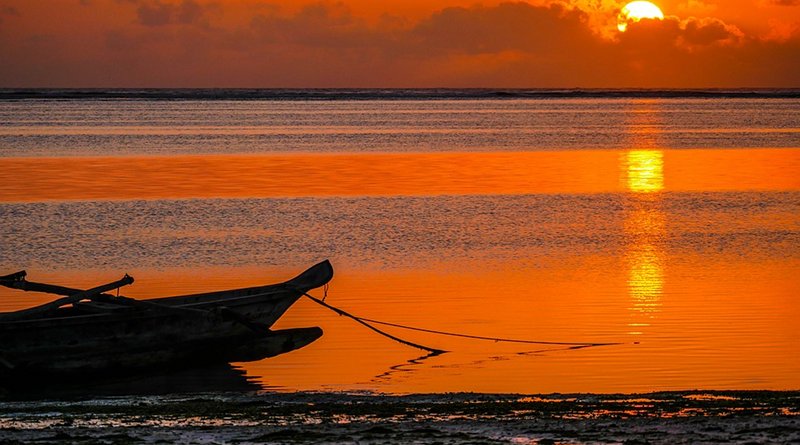
The Executive Council of the Intergovernmental Oceanographic Commission (IOC) held a significant meeting in Paris from June 25 to 28, 2024. This session prominently highlighted the achievements of the IOC Regional Committee for the Central Indian Ocean (IOCINDIO), which has been a key player in oceanographic research since its establishment in 1982. The discussions in Paris underscored the importance of IOCINDIO’s contributions to various scientific research areas such as ocean temperature, ocean observation, ocean weather, and coastal vulnerability.
The Evolution and Achievements of IOCINDIO: Historical Context and Mission
Since its inception in 1982, IOCINDIO has operated under the aegis of the IOC, with a dedicated focus on the Central Indian Ocean. The committee’s mandate has been to foster scientific research and collaboration among member states, addressing critical issues related to the ocean’s health and its impact on coastal communities. Over the years, IOCINDIO has spearheaded numerous initiatives aimed at understanding and mitigating the effects of climate change, enhancing oceanographic data collection, and promoting sustainable use of marine resources.
Key Research Areas
IOCINDIO’s research spans several critical areas:
Ocean Temperature: Monitoring changes in ocean temperature is vital for understanding climate change. IOCINDIO has been instrumental in deploying temperature monitoring systems across the Indian Ocean, providing crucial data for global climate models.
Ocean Observation: Comprehensive ocean observation is essential for predicting weather patterns and understanding marine ecosystems. IOCINDIO has established a network of observation stations, contributing to a global effort to monitor oceanic changes.
Ocean Weather: By studying ocean weather patterns, IOCINDIO helps predict extreme weather events, such as cyclones and tsunamis, thereby aiding in disaster preparedness and mitigation.
Coastal Vulnerability: Coastal areas are particularly vulnerable to the impacts of climate change. IOCINDIO’s research focuses on assessing and mitigating the risks faced by coastal communities, including sea-level rise, coastal erosion, and habitat destruction.
Paris Meeting: Budgetary Provisions and Future Directions
The Paris meeting was pivotal in securing budgetary provisions for several key activities that will further bolster IOCINDIO’s impact. The allocated budget will support the following initiatives:
GOOS Regional Alliance for the Indian Ocean: The Global Ocean Observing System (GOOS) plays a crucial role in coordinating international ocean observation efforts. The budget will enhance the capabilities of the GOOS Regional Alliance for the Indian Ocean, ensuring better data collection and analysis.
Building Community Resilience: Funds will be directed towards initiatives aimed at building resilience in coastal communities. This includes education, infrastructure development, and the implementation of early warning systems for natural disasters.
IOCINDIO Governance and Coordination: Effective governance and coordination are essential for the success of any scientific endeavor. The budget will support the administrative functions of IOCINDIO, facilitating better collaboration among member states.
IOCINDIO Capacity Development: Capacity development is crucial for empowering member states to undertake independent research and implement sustainable practices. The budget will fund training programs, workshops, and the development of research infrastructure.
IOCINDIO Ocean Literacy: Promoting ocean literacy is vital for fostering a deeper understanding of oceanic issues among the general public. The budget will support educational campaigns, outreach programs, and the development of educational materials.
Leadership and Strategic Initiatives: Rear Admiral Md. Khurshed Alam’s Leadership
In June 2021, Rear Admiral Md. Khurshed Alam (Retd.), Secretary of the Maritime Affairs Unit of the Ministry of Foreign Affairs of Bangladesh, was elected as Chair of IOCINDIO. Under his leadership, IOCINDIO conducted eleven meetings with various member states and stakeholders, driving forward numerous initiatives and fostering greater collaboration.
Elevation to a Sub-Commission
One of the most significant achievements under Rear Admiral Alam’s leadership was the successful passage of a resolution to upgrade IOCINDIO to a sub-commission for the Indian Ocean. This resolution was approved by the IOC Assembly in June 2023. This upgrade brings IOCINDIO in line with other regional entities under the IOC, such as those in the Pacific, Caribbean, and African coasts, enhancing its capacity to address the unique challenges of the Indian Ocean region.
Re-election and Future Proposals
Following the upgrade, Rear Admiral Md. Khurshed Alam (Retd.) was re-elected as Chair of the IOCINDIO Sub-Commission. His leadership continues to drive the committee forward, with several new proposals submitted to the IOC aimed at enhancing research on the Indian Ocean. These proposals include initiatives to expand oceanographic research, improve data sharing among member states, and increase the deployment of advanced monitoring technologies.
Strategic Importance of the Indian Ocean: Geopolitical and Economic Significance
The Indian Ocean holds immense geopolitical and economic significance. It is a major conduit for international trade, with some of the world’s busiest shipping lanes. The region is also rich in natural resources, including fisheries and hydrocarbons, making it a focal point for economic activities.
Environmental Challenges
Despite its importance, the Indian Ocean remains one of the least explored oceans in the world. It faces numerous environmental challenges, including pollution, overfishing, and the impacts of climate change. Addressing these challenges requires concerted efforts and robust scientific research, areas where IOCINDIO plays a crucial role.
Collaborative Efforts
The work of IOCINDIO underscores the importance of international collaboration in addressing oceanographic issues. The committee’s efforts bring together diverse member states, fostering a collaborative approach to research and problem-solving. This collective effort is essential for developing effective strategies to protect and sustainably manage the Indian Ocean’s resources.
Conclusion
The Executive Council meeting of the Intergovernmental Oceanographic Commission in Paris was a testament to the significant achievements and future potential of IOCINDIO. Under the leadership of Rear Admiral Md. Khurshed Alam (Retd.), IOCINDIO has made remarkable strides in oceanographic research and collaboration. The elevation of the committee to a sub-commission marks a new chapter in its history, promising enhanced capabilities and greater impact. With continued support and collaboration among member states, IOCINDIO is well-positioned to address the pressing challenges of the Indian Ocean, contributing to a sustainable and resilient future for the region.
